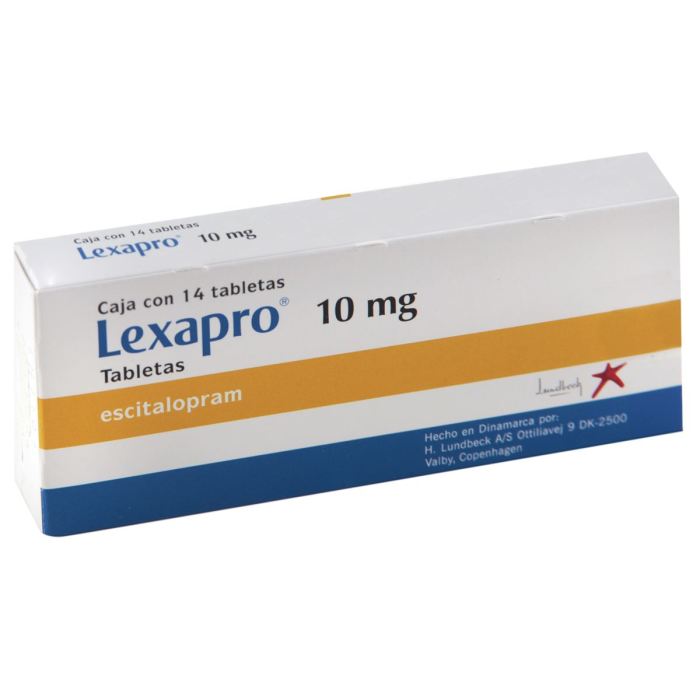Lexapro, also known as escitalopram, is a selective serotonin reuptake inhibitor (SSRI) commonly prescribed for anxiety and depression. It works by increasing the levels of serotonin, a neurotransmitter that plays a crucial role in regulating mood, sleep, and appetite.
This medication has gained significant attention for its potential to alleviate symptoms associated with various mental health conditions, including generalized anxiety disorder, obsessive-compulsive disorder, and social anxiety disorder. However, it’s essential to understand the potential side effects and interactions before considering Lexapro as a treatment option.
Therapeutic Uses and Benefits: Lexapro

Lexapro, also known by its generic name escitalopram, is a selective serotonin reuptake inhibitor (SSRI) medication primarily used to treat anxiety and depression. It works by increasing the levels of serotonin in the brain, a neurotransmitter that plays a crucial role in regulating mood, sleep, appetite, and other functions.
Treating Anxiety Disorders, Lexapro
Lexapro is commonly prescribed for various anxiety disorders, including generalized anxiety disorder (GAD), social anxiety disorder, panic disorder, and obsessive-compulsive disorder (OCD). It helps to alleviate symptoms such as excessive worry, fear, nervousness, restlessness, and difficulty concentrating. For instance, a person with GAD might experience persistent and overwhelming worry about everyday situations, leading to significant distress and impairment in daily life. Lexapro can help reduce these feelings of anxiety and improve their overall quality of life.
Treating Depression
Lexapro is also widely used for treating major depressive disorder (MDD), characterized by persistent feelings of sadness, hopelessness, loss of interest, and changes in sleep, appetite, and energy levels. By increasing serotonin levels, Lexapro helps to elevate mood, improve sleep patterns, and increase energy levels.
Treating Other Mental Health Conditions
In addition to anxiety and depression, Lexapro may also be effective in treating other mental health conditions, such as:
- Premenstrual dysphoric disorder (PMDD): Lexapro can help alleviate severe mood swings, irritability, and anxiety associated with PMDD.
- Post-traumatic stress disorder (PTSD): While not FDA-approved for PTSD, Lexapro may be helpful in managing some PTSD symptoms, such as anxiety, nightmares, and intrusive thoughts.
- Bulimia nervosa: Research suggests that Lexapro may be effective in reducing binge eating and purging behaviors associated with bulimia.
Lexapro represents a significant advancement in the treatment of anxiety and depression, offering a potential path towards improved mental well-being. However, it’s crucial to approach this medication with caution, understanding its potential benefits and risks. Consulting with a healthcare professional is essential to determine if Lexapro is the right choice for your specific needs.
Lexapro, a common medication for anxiety and depression, works by regulating serotonin levels in the brain. While Lexapro targets the nervous system, other medications like aminophylline focus on the respiratory system, often used to treat asthma and other breathing difficulties. Understanding the specific mechanisms of these medications is crucial for effective treatment and management of various health conditions.